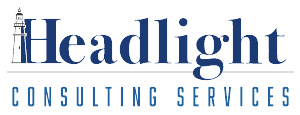What is Organizational Change Management?
Like systems, organizations are central entities in our world, made up of a variety of people with different skills trying to accomplish a goal together. Once a group of people have been assembled, organizations start to take on a life of their own in terms of behavior and culture*. Sometimes, organizations are in need of a behavior, culture, or strategy shift to respond to emergent needs, implement new tools or approaches, or make course corrections. Effecting change in an organization is rarely as simple as announcing what the change will be. Organizations often have established social norms and people default to existing practices in their day-to-day operations. Because of this conundrum, organizational behavior change and change management have emerged as a speciality with tools and expertise to help guide organizations through the ups and downs of change.
Navigating change well at any level can be assisted by developing new strategies, policies, procedures, practices, or technology**. The key when responding to change is understanding what the options are. We help clients assess what resources they have available and what needs to happen in order for their organization to move forward. Sometimes this can involve participatory facilitation with affected parties to dig deeper into what a change means and understand where the individuals within the organization fall on a scale from resistance to support. We take the approach of helping clients plan and execute “small wins” as they are adapting to change, demonstrating effectiveness and the benefits of the change to those who may have been resistant. Headlight can also help clients think through what might be necessary in preparation, e.g. communicating to stakeholders what is coming when planning for a change in advance.
Why should you procure Organizational Change Management support?
The new push on uptake of evidence in the international development field, the increased implementation of learning agendas, adaptive management, and transition moments will all require behavior change from affected organizations. Sometimes these processes are smoother than others, but all can benefit from an external party that can bring the information, tools, and resources necessary to bring colleagues on board with changes, capture feedback loops to iterate on the change process, and ensure timely and sustained application of the desired changes. Headlight’s organizational behavior change solutions are tailored to each clients needs, size, and the magnitude of the change, but all services are based on data-driven decision making and trustworthy advisory support through the process.
Our Organizational Change Management Service Offerings
Headlight Consulting Services, LLP offers the following organization change management services:
- Change management facilitation and workshops;
- Ongoing learning advisory support and/or organization-oriented developmental evaluation;
- SWOT analyses and action planning;
- Scenario planning (2×2 matrices, Futures planning, Systems-based Theory of Change scenario facilitation, etc.);
- Organizational Capacity Assessment Tool (OCAT) design and implementation;
- Strategy planning and development workshops with integrated behavior change action plans;
- Design, implementation, and comparative analysis of contextualized maturity matrices; and,
- Sustainability planning.
Headlight would love to support your organizational change management needs. We have the breadth and depth of expertise, experience, and toolbox to tailor-design a solution for you. For more information about our services please email info@headlightconsultingservices.org. Headlight Consulting Services, LLP is a certified women-owned small business and therefore eligible for sole source procurements. We can be found on the Dynamic Small Business Search or on SAM.gov via our name or DUNS number (081332548).
*https://open.lib.umn.edu/organizationalbehavior/chapter/1-2-understanding-organizational-behavior/
**https://open.lib.umn.edu/organizationalbehavior/chapter/14-3-organizational-change/




